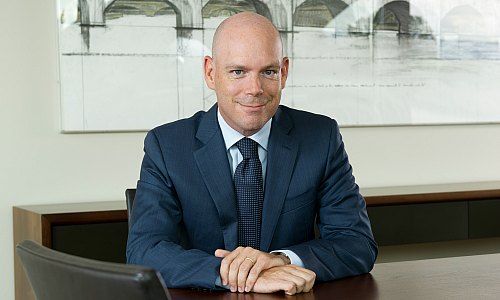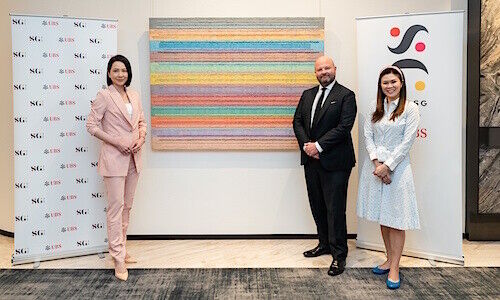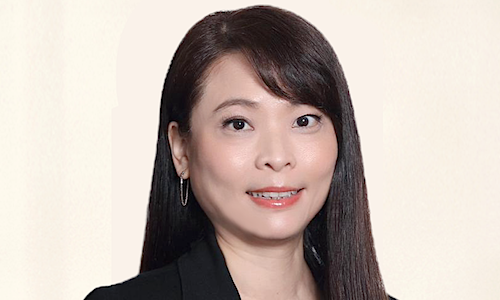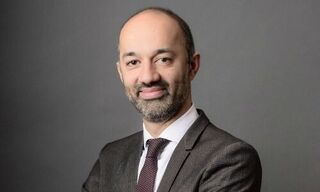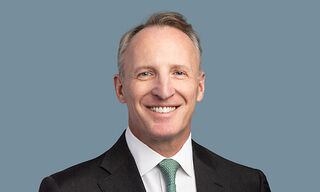Rothschild's Swiss private bank is poised for to grow in Asia after cementing its position in Switzerland and Germany. Chief Executive Laurent Gagnebin tells finews.asia how.
Laurent Gagnebin, in addition to being overall CEO you're also responsible for Rothschild's Asian business. What is your strategy for this growth market?
Asia is a key market for us: we can focus on very wealth families and entrepreneurs who want to diversify some of their funds by managing them in Europe. We're benefiting from a renowned brand, the strong presence of our global advisory business and our trust business.
«We have shifted some resources from Hong Kong to Singapore»
Asian clients are also interested in the option of investing in private equity, which our merchant bank can facilitate. Because we don't have an Asian booking platform, we don't have the problem of high overhead spending that other foreign banks do.
You hired in Singapore this past year. What are your expectations now?
We're present in both Singapore and Hong Kong, where our headcount has grown only marginally in the last three years. We have shifted some resources from Hong Kong to Singapore.
«Our goal is to grow sharply in Asia without a booking platform»
Overall in Asia, we employ roughly 30 people for private wealth and our trust business. Our goal is to grow markedly in coming years with this slim set-up and clearly defined offering.
You've been Chief Executive of Rothschild Bank in Switzerland for over a year. What have been the key developments since you came on board?
No single event defined this year, it's been more a sum of many small measures that are beginning to take hold. Some had already been initiated by my predecessor Veit de Maddalena, while others were launched by my team and I.
«Our efficiency also improved, with a marked decrease in our cost-income ratio»
For example, we devoted a lot of energy to bettering our investment approach, which has led to a sharp improvement in our performance. We further expanded our client advisor teams in all our markets, thus improving client service. And our efficiency also improved, with a marked decrease in our cost-income ratio.
What are the stiffest headwinds you still face?
Generally speaking, we want to grow in all our markets. We managed to do so in recent years, especially in Geneva and in Germany. We're progressing well in Zurich too. Because we invested considerable resources into our information technology (IT), our platform is now scalable without much additional spending.
«Taking steps towards digitization»
We also want to make a key step towards digitization. Here, it's about providing clients with better access to our services through digital channels, but also using technology consistently to improve our service.
Your managed assets fell last year and you had net outflows. Are you concerned?
No. The development is easily explained: We sold a subsidiary of Rothschild & Co Gruppe, and part of the client assets left our book. That factor aside, we also acquired net new money in all our markets.
«First three months promising on net new money»
Of course our ambition is to win more new clients in slower-growing markets than we did last year. The first three months of this year are promising in that respect.
Where was the bulk of your growth last year?
We were particularly successful in Geneva, Frankfurt, and in various international markets. In Geneva, we more than tripled client assets in the last three years. In Zurich, we expanded our market position and our profile, which will be felt with new clients this year.
A few months ago, you told finews.asia that Switzerland remains a key market. What have you achieved?
Ten years ago, we had practically no Swiss clients. Meanwhile, we manage roughly 5 billion Swiss francs onshore in Zurich and Geneva, which is more than one-third of our total managed assets. We also see that our approach of objective and conflict-free advice and long-term view is increasingly appreciated here.
How is that represented in your headcount in Switzerland?
Employee headcount remained stable, but we did expand our customer advisory and moved some resources from back-office to client roles. We added several private bankers in this past business year.
Several directors, including Baron David de Rothschild, left Rothschild's board this year. Has he lost trust in the firm?
No, quite the opposite. Baron David's son Alexandre remains on our board, representing the founding family's eighth generation.
«It is about having smaller and slimmer bodies»
The changes have to do with a simplification of Rothschild & Co's structure. It is about having smaller and slimmer bodies.
What are your leadership priorities?
The absolute focus on clients is the most important thing to me. This approach is presumably because of my education at (renowned hospitality school) Ecole Hotelière de Lausanne and my experiences in the luxury hotel and food industry. My other key tenants are a flat hierarchy, trust, and teamwork.
Besides its name, what differentiates Rothschild Bank from its competitors?
Our entire offering is very simple and focused. We're aware that we can't be everything for everyone. One important differentiator is an independent and conflict-free advisory – we don't sell any of our own products. This is coupled with transparent costs and a long-term investment view.
«Eighth Rothschild generation bolsters credibility with entrepreneurs»
All these traits are part of the DNA or the entire Rothschild & Co group and are rooted in a long family tradition. The eighth family generation is now in charge – another reason we are a credible partner for entrepreneurs.
The 40-year-old Laurent Gagnebin joined Rothschild Wealth Management Equitas, the Genevan arm of Zurich-based Rothschild, in 2011. Prior to that, he ran Investec Bank in Geneva. He got his start in finance at Goldman Sachs in Switzerland, after working in the luxury hospitality industry for several years following his education at the École hôtelière de Lausanne. He succeeded Veit de Maddalena as head of Rothschild in Switzerland in July 2016.
Laurent Gagnebin is the son of George Gagnebin, a Swiss private banker who was part of UBS' top management following its merger with Swiss Bank Corporation. Today, the elder Gagnebin is chairman of Geneva-based Banque Pâris Bertrand Sturdza.

